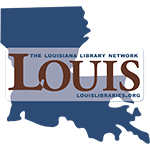Module 2 Discussion
Forum Instructions
In a post below, respond to the following prompt, which assess the course outcomes of identifying philosophers and thinkers, and of demonstrating critical thinking.
Then, you must respond to (X) of your classmates' posts. After you post a response, you will be able to see other responses. You are not required to post more than once, but feel free to respond to other posts and engage with your classmates[Edit previous three sentences to suit forum function/requirements].
Your [first] post is due on [day of week] by [time] CST. Your response to another student is due on [day of week] by [time] CST. [Adjust for number of posts required.]
Your response should be at least [length requirement in words, sentences, or paragraphs] long. This includes responses to other students' posts. [Include previous sentence if necessary.] A simple “I agree” or “Yes” or “LOL” will not count. Please think about the questions and your peers' responses and reply thoughtfully and courteously, according to netiquette rules. Use good English grammar, correct punctuation, and complete sentences. While the posts will mostly be judged by their thoughtfulness and completeness, I reserve the right to take off points for grammatical errors, especially if they interfere with the clarity of the post.
Prompt
Welcome to our discussion board dedicated to the captivating realm of epistemology! In this thread, let's delve into the fascinating world of how we acquire knowledge, the limits of what we can know, and the philosophical inquiries that have shaped our understanding of reality. Whether you're an avid philosopher or just curious about the nature of knowledge, this is the space to share ideas, ask questions, and explore the depths of epistemology. Please select and respond to one of the following:
Discussion Points:
-
The Nature of Knowledge:
- What does it mean to "know" something? How do we differentiate between mere belief and true knowledge?
- Explore the classic tripartite definition of knowledge: belief, truth, and justification. Do you think this definition is sufficient, or does it face challenges?
-
Sources of Knowledge:
- Consider the various sources of knowledge, including perception, reason, memory, and testimony. Which sources do you find most reliable, and why?
- Can we acquire knowledge without relying on our senses? Discuss the role of intuition and introspection in shaping our understanding of the world.
-
Skepticism and Doubt:
- Delve into the world of skepticism and its impact on our pursuit of knowledge. What are some common skeptical challenges, and how have philosophers historically responded to them?
- Reflect on whether it's possible to completely eliminate doubt from our beliefs, or if skepticism is an inherent part of human inquiry.
Activity completion: Select completion criteria and an expected completed date.
